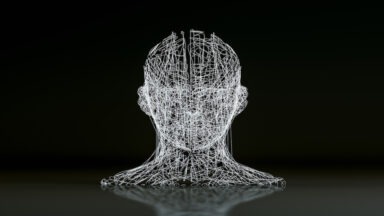Stephen Hawking’s Last Warning: Superhumans May Conquer Humanity

CRISPR, the new technology that allows scientists to genetically edit our DNA, will be the end of normal humans, according to Stephen Hawking in his final publication Brief Answers to the Big Questions.
Before his passing, Hawking penned a series of essays on his final research, which included a few cautionaries for our future. He prefaced his musings with an upbeat recollection of his storied career, but his warnings proved incredibly depressing. Namely, the fact that he believed genetically modified superhumans will eventually rule our species, elbowing out the rest of us naturally born plebeians.
Of course, these observations went beyond Hawking’s traditional field of study, though they were corollaries to the work of an astrophysicist who aimed to define some of the deeper questions about our existence.
But whether or not you agree with his adamantly atheist, parting claim that God doesn’t exist, it’s easier to sympathize with his fear that designer humans with superior genetics may be around the corner and may exacerbate the ever-expanding crevasse of inequality in the world.
“Once such superhumans appear, there are going to be significant political problems with the unimproved humans, who won’t be able to compete,” Hawking said. “Presumably, they will die out, or become unimportant.”
Forget your fears of automation putting people out of work, superhumans will make us all obsolete anyway. But is this really a legitimate threat or another dystopian, sci-fi fantasy? We’d like to have more faith in humanity and believe it’s the latter.
CRISPR is certainly making leaps and bounds in genetic engineering, specifically to cure untreatable disease and prevent genetic mutations, but many are worried the technology will soon be used to create designer babies. Hawking feared this prospect, despite the fact that its premise is based on distant, unproven possibilities and a lack of faith that those with access to the technology actually have ethics.
Hawking also fails to recognize the fact that the same science and ethics that created the technology which allowed him to continue his work – and continue to live for that matter – is what lead to CRISPR in the first place. Put simply, the potential biomedical breakthroughs from CRISPR technology are likely to prevail over the pessimistic dystopian possibilities he put forward.
For more on how technology is allowing us to become superhuman in a less dystopian way, check out this documentary with Dr. Jordan Nguyen, Becoming Superhuman:
Should We Be Hesitant to Embrace Transhumanism?

The human body has somewhere in the vicinity of 50 to 100 trillion cells, depending on who you ask. Each of these cells has .07 volts of electrical energy potential — a relatively small number you might say. But when you multiply those .07 volts times 50 to 100 trillion, you get somewhere between two and a half, to five trillion volts. We are powerhouses of electrical energy potential.
Yet for some, this potential isn’t enough. In the minds of transhumanists, the body is a work in progress — one in which we must actively improve toward some perceived ideal. In some circumstances they may be right; our bodies are not all created equally, some face deformities and defects, or aren’t built as sturdy as others, making a good argument for the need to artificially augment.
But according to researcher and author Gregg Braden, this is a slippery slope — one in which we must tread with caution while appreciating the truly high-tech construction of the biological suits we’ve found ourselves born into.
“All of the technology that is now being developed in the world around us, and I worked in the Cold War years in the defense industry, space-based lasers, ‘Star Wars’ Defense Initiative… and I have yet to this moment, seen any tech in the world around us that does not mimic what we already do in our cells, except our cells do it better,” Braden said in a recent interview with Regina Meredith on Open Minds.
With advancements in microchip technology, futurists envision a world in which we begin to work toward almost complete integration with technology and computers. Some even go so far as to believe we will one day be capable of transferring our consciousness onto a hard drive composed of microscopic silicon chips, experiencing the world through that mechanistic, binary scope of the computer — potentially allowing humans to achieve something that looks like immortality.
But this reductionist mindset of the materialist, scientific lens is incredibly arrogant, Braden said.
Firstly, science’s “hard problem of consciousness” currently limits it from understanding what exactly consciousness is and where it comes from. And secondly, would this really even be the same kind of consciousness? Can you separate consciousness from our biological nature? And if you could, why would you?
Those are the two trains of thought when it comes to the views of our advancing technology and the transhumanist movement, Braden said.
One side views it as, “If we were never supposed to learn how to achieve such a feat, why have we gotten this far?”
While the other side says, “Just because we can, doesn’t mean we should.”




































